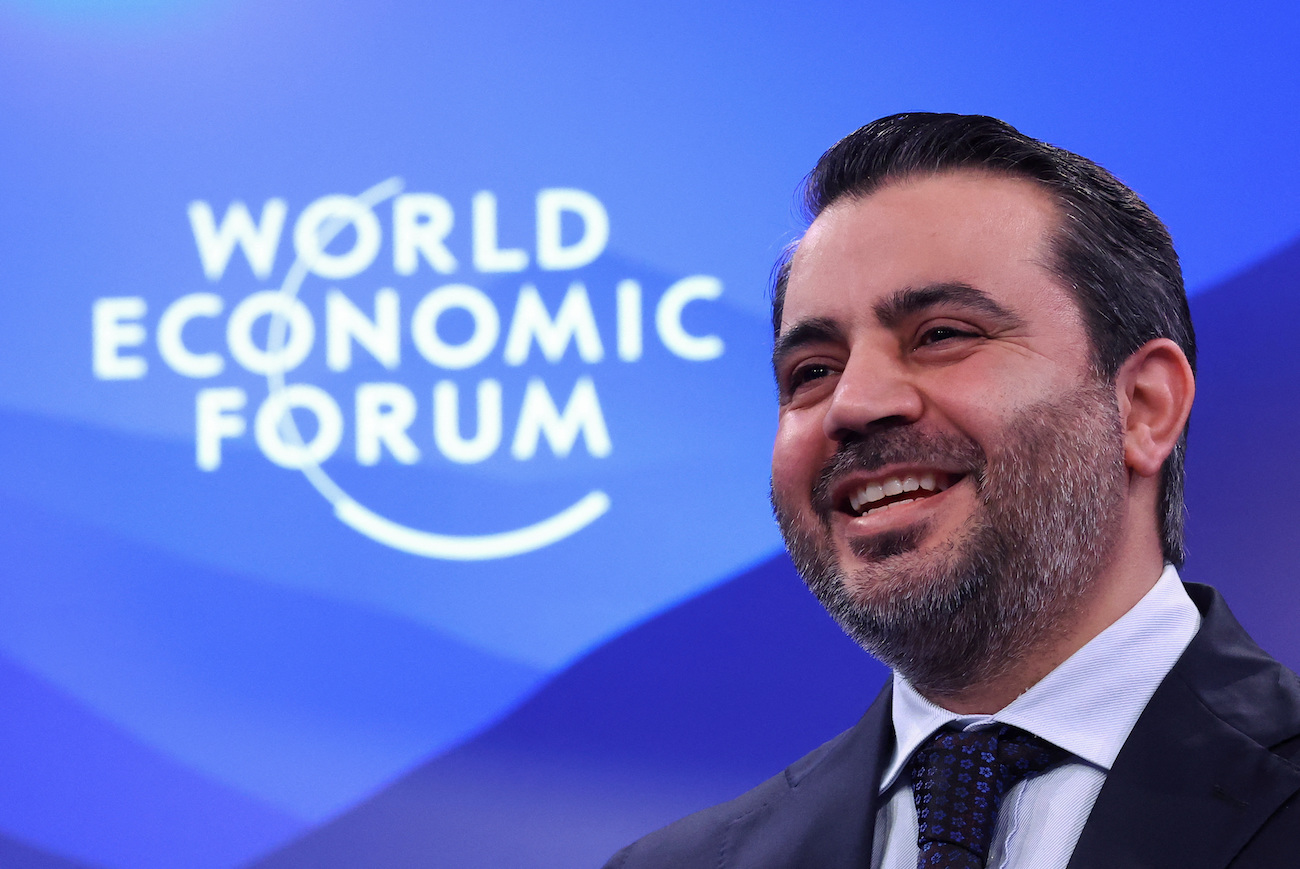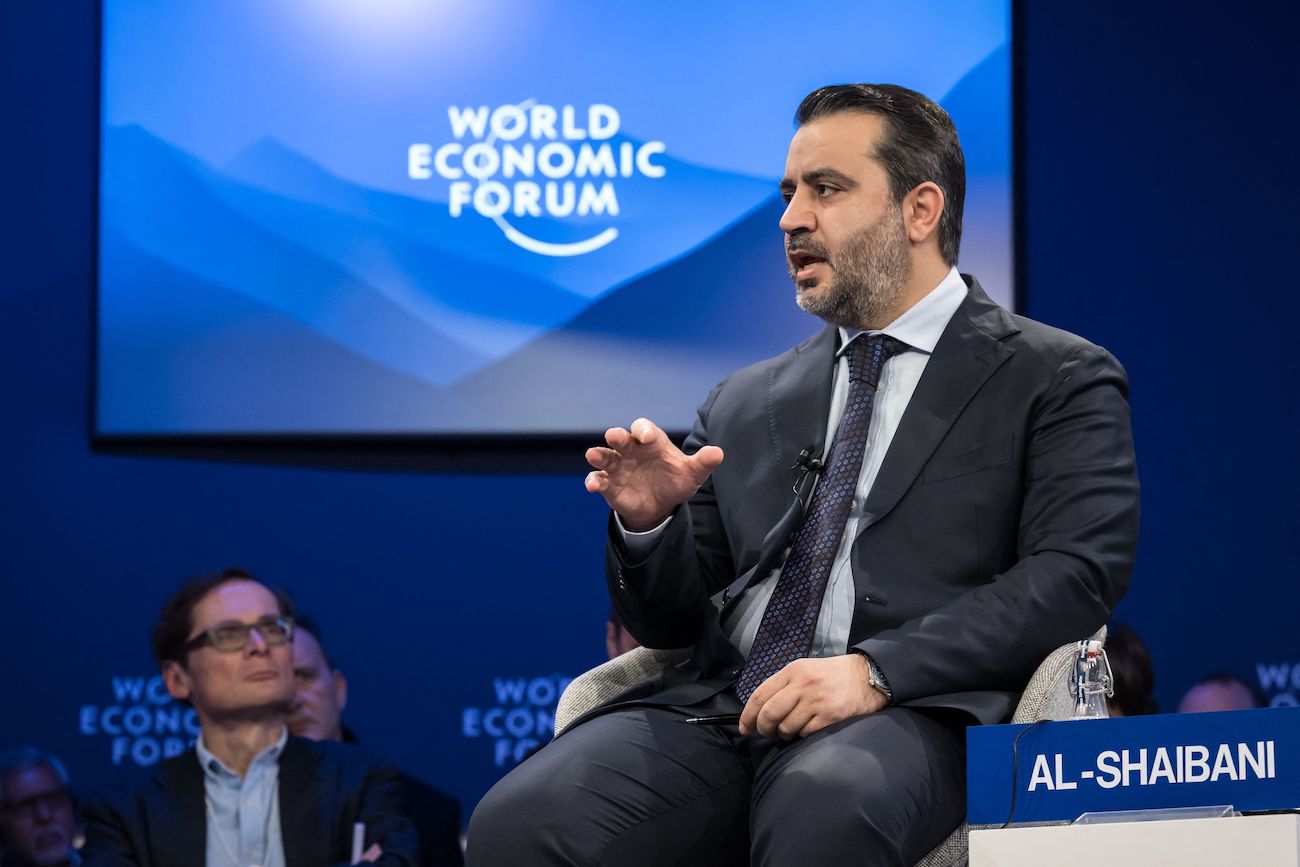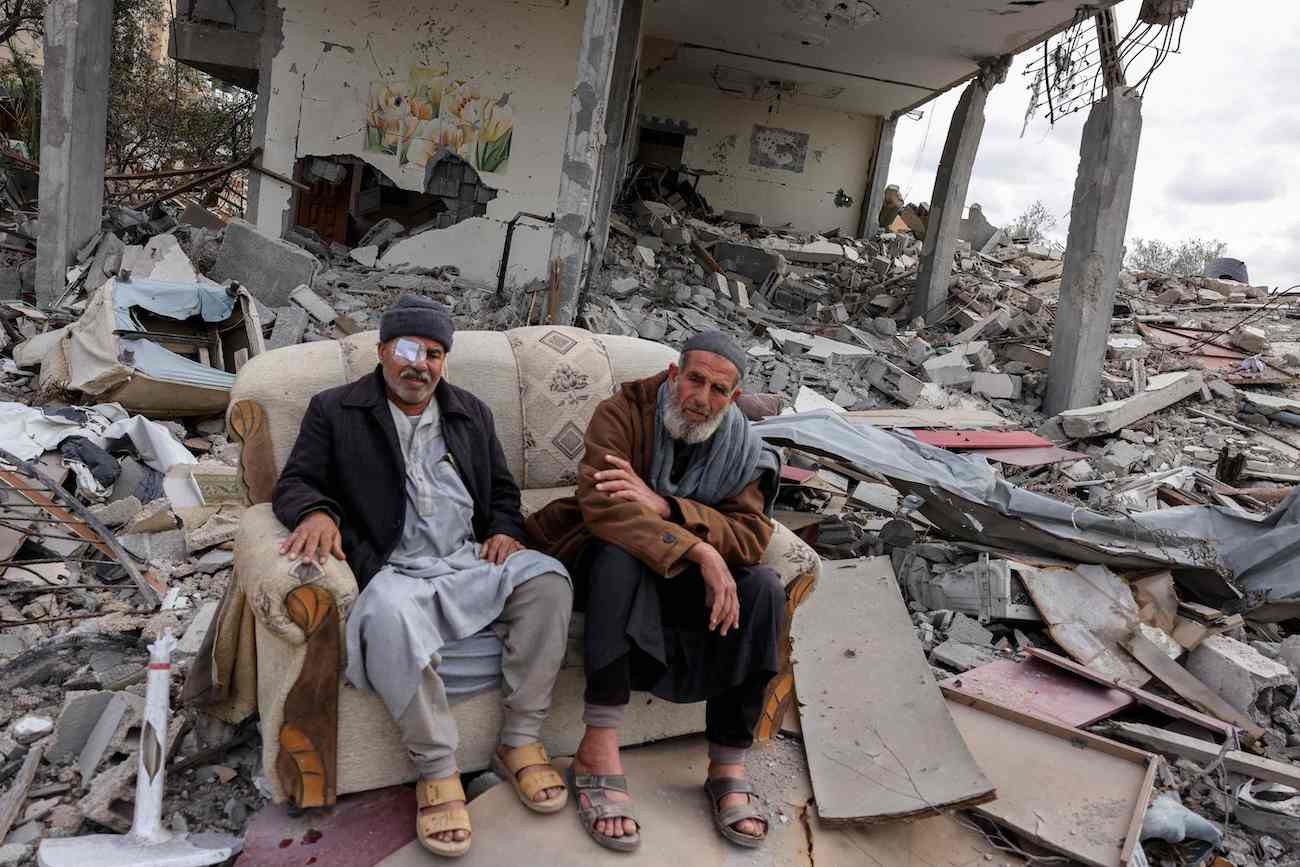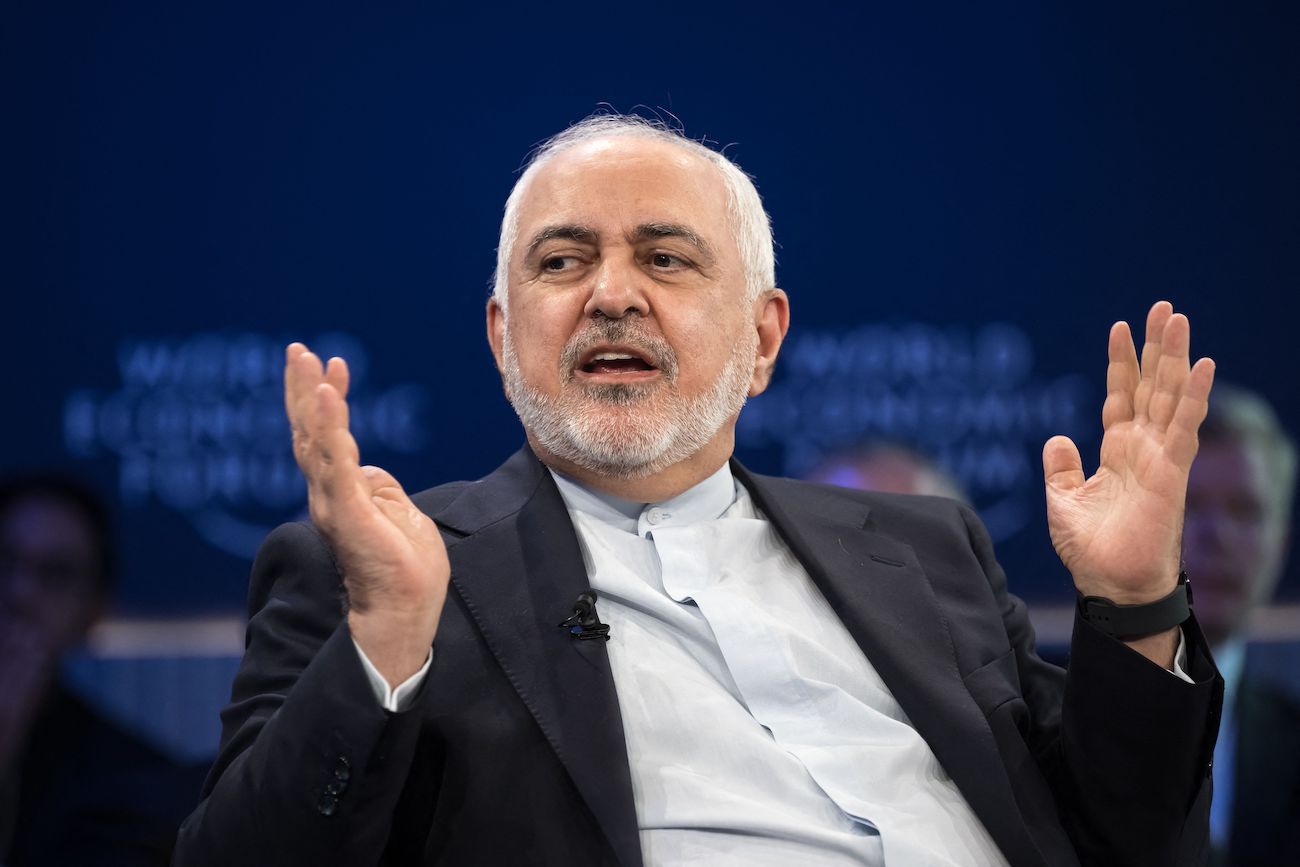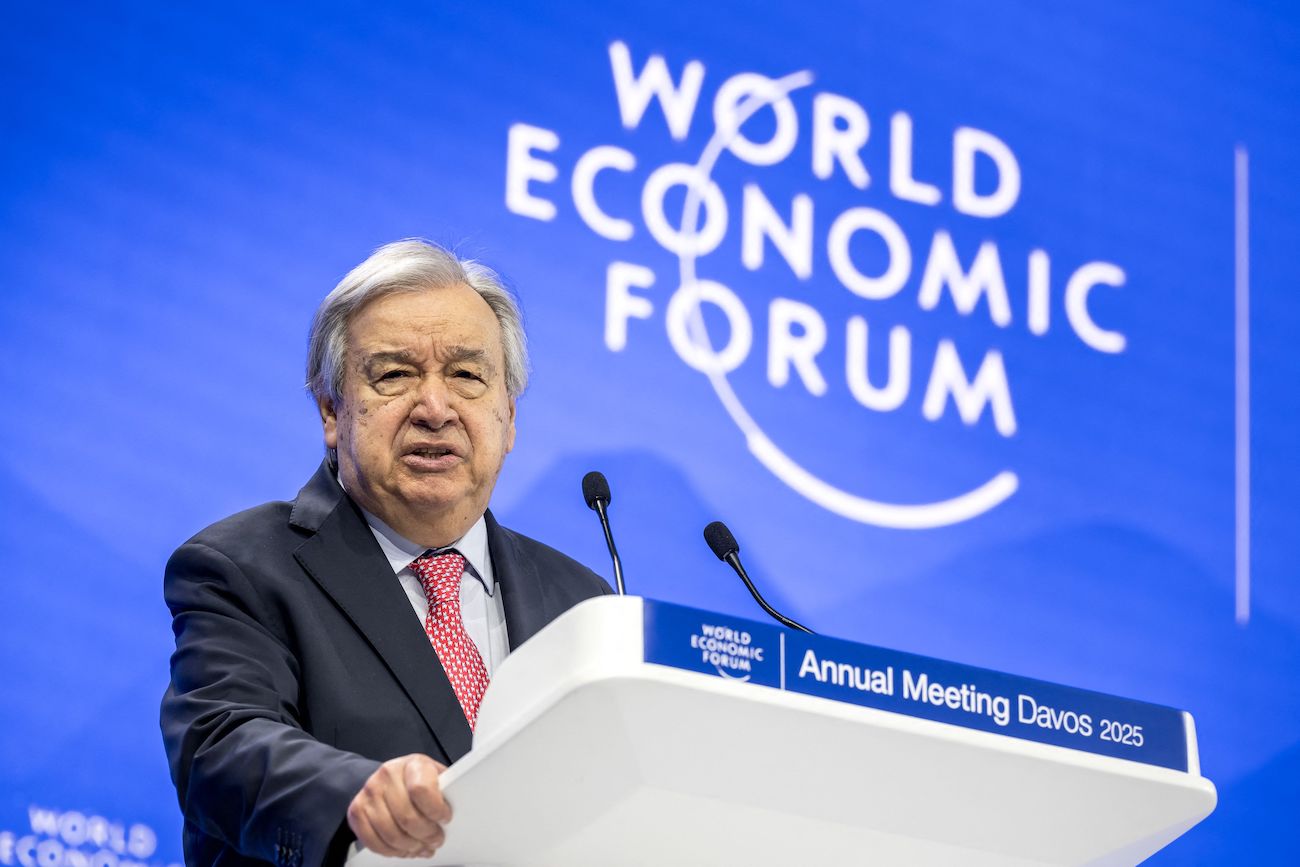NEW YORK: A septuagenarian grand-grandfather from New York, Rabbi Abraham Cooper is known for breaking ground internationally. A director of the Jewish human rights organisation Simon Wiesenthal Centre, he helped smooth the way for Bahrain and the United Arab Emirates to normalize relations with Israel back in 2020, laying the groundwork years earlier.
Long before then, in the 1980s, he opened the first Jewish cultural centre in Moscow after visiting the Soviet Refuseniks in the 1970s. In 1995, he flew to Cairo to ask Sheikh Tantawi, the then Grand Mufti of Egypt, to meet Israel’s Chief Rabbi Lau (a Holocaust survivor) to improve Jewish-Muslim relations (they eventually met four years later). In 2004, he travelled to Khartoum to become the first Jewish leader to meet Sudan’s President Omar al-Bashir. In short, he opens doors, some for the first time.
Back in 2017, during US President Donald Trump’s first term, Cooper hosted the King of Bahrain, helping to pave the way for normalised relations between his country and Israel that became known as the Abraham Accords. It was therefore of interest that, along with American Christian leader and religious freedom campaigner Pastor Johnnie Moore, Cooper visited Damascus in June, meeting Syria’s President Ahmed Al-Sharaa, having met Foreign Minister Asaad al-Shaibani in April.
Al Majalla spoke to Rabbi Cooper afterwards about the Damascus talks, his role, his perceptions of Syria’s future, and relations between Damascus and Tel Aviv. He clearly sees Trump as key to rapid progress, and left the Syrian capital impressed with Al-Sharaa, who he said “holds a vision for Syria that accommodates all its citizens”. Cooper said the Syrian leader, a former Islamist, “looks at things with a strategic and practical mindset”. This is the conversation:
Do you think the war between Iran and Israel will have any effect on your efforts in Syria?
The total defeat of the Ayatollahs’ tyranny will be great for the people of Iran, for the people of Israel, for Syria’s future, for greater stability, and for the future of our grandchildren. Great things are possible. For Syria, it can give an injection of hope that life will improve and the brain drain will end. Let’s start with people of different faiths working together towards a real peace.
How was your trip to Damascus?
Full of surprises and too short! Each meeting was invigorating, as was walking through the Christian Quarter, seeing people out again in the street. The most important time of all was the two hours we spent with the president (Al-Sharaa), an Islamist who also has a vision for an inclusive new Syria for all its citizens. He looks at things with a strategic and practical mindset, with a view to removing Syria from countries’ lists of enemies, with the hope of building on peace.
He went into more depth than our meeting with the foreign minister a few weeks ago at the United Nations. I happened to be in New York that day. We have come a very long way in a very short period. We also had a lengthy meeting with 15-20 Christian leaders from across Syria, plus some who work in Lebanon. They wanted to know what would happen to the Christians, just as we asked, what would happen to the Jews. The hope is that there will be a unified Syria, with one army, and everyone in equal citizenship.
I’m particularly sensitive to that topic. I chaired the US Commission on International Religious Freedom last year and have been an activist for half a century. As a Jewish American, I look at human rights through the lens of religious freedom, as a kind of litmus test for the health of a society. I hope you (Syria) can combine the leader’s vision with the more practical concerns over the quality of life for Syrian citizens. It would be arrogant for someone who spent maybe 35 hours in Syria to start giving all sorts of ideas, but I think there is hope.
What is the main message you have for the Syrian president?
I represent no government, I’m no spy, I’m just a Jewish guy with an American passport, but my approach is very simple: try to help by communicating with government officials on a practical basis, and supporting sustainable humanitarian projects, the kinds of projects that involve people from different countries and cultures. I raised two at the meeting.
As a Jewish American, I try to look at human rights through the lens of religious freedom, as a kind of litmus test for the health of a society.
Rabbi Abraham Cooper
One is to help Syrians close the circle of grief by using DNA to match families with human remains. This would let them give their loved ones a proper burial and learn the truth about where they perished. I spoke to Fr. Patrick Desbois, who is based in Paris. He is an expert in the excavation of mass graves and is committed to helping. He did it in Ukraine, in Central America, in Iraq, and for Jewish people from the Holocaust. It's not an overnight project, but it could benefit all Syrians, whatever their religious or ethnic background is.
The second project is more generic. Flying into Damascus, you see: there's so much desert. There is expertise on water and agriculture next door (in Israel). The idea is to facilitate the movement of areas (on water and agriculture between Syria and Israel). It may be a bit early for government-to-government, but we used NGO's (international non-governmental organisations) in Bahrain in the years leading up to the Abraham Accords, also a bit in the UAE.
Just the drive from the airport to Damascus shows how huge the challenge is, including on infrastructure. It's a huge list and we can't do everything—I'm old enough not to over-promise! But the idea is: diplomats sign treaties, people make peace.
You mean to encourage people-to-people diplomacy? To provide water from Israel to the suburbs of Damascus?
I mean you share the expertise over water that you have. I've already had meetings with the foreign minister and various Israelis, one of whom has a great NGO in Africa that's reclaiming water; she's done great work, taking used water and making it drinkable again. You've got that (knowledge) with people right next door. All they need is a phone call.
What kind of response did you get?
I would say, not in a direct way. I got no response about the DNA. That could either be very good or not very good, we'll find out in the coming weeks, because I'm going to continue to pursue it. The response I got to the other issue (water) was a bit 'chicken and egg,' you know, first we've got to do X, then we can talk about Y…' I understand. But I'm an old man; I don't have time to wait.
There are two ways to do this. First, with an NGO, like we did with Bahrain two years before the Abraham Accords, we invited religious leaders to be our guests in Jerusalem. It was great. It was a multiplier. Here, we want to talk about water, not ideology. We can bring five or six (Israeli) experts to Damascus, then spend a couple of days out in the field where it's safe. It goes from there. Give me a list of five or six experts in Syria who need the help. They don't need me at a meeting; they just need to sit with their opposite numbers from Israel.
Let them start. It doesn't need to be public. I don't think you can ever do anything in Israel that's secret, but it's practical, it will involve human connection, and if it happens, it'll be good for Syria, and will create maybe a more positive direction.
In Bahrain and the UAE, you played a key role in preparing the ground for them to join the Abraham Accords. Do you think Syria, with its new leadership, is on that path?
I don't think you can be an expert after three meetings, but the meetings were with people who make a difference. The priority now for Syria is to remove countries from their enemy lists. So, first of all, let's not be enemies. This is not such a bad approach.
On the Abraham Accords itself, honestly, there is one man who can speed up this process, and one man only: Donald Trump. I saw that Netanyahu, the other day, made a public request that President Trump get involved. I'm no expert. I've known Netanyahu for many years, but I don't report to him.
When I discussed American sanctions on Syria with American diplomats, some laughed at me. They didn't want to drop the sanctions. They said: 'Look what happened in Afghanistan. They promised everything, we removed the sanctions, and three weeks later, girls couldn't attend school.' But President Trump ignored them (and decided to remove sanctions on Syria). Only Donald Trump has brought us to this place. For the Presidents of Syria and Israel to have a meeting in his office is the best way to fast-track this. Without that, both sides will need confidence-building measures.
Did you brief Trump or his team about your meeting with Al-Sharaa, and is the trilateral meeting 'on the table'?
Check with Pastor Moore. He runs the Gaza Humanitarian Foundation. He has the closest, informal contacts, but I know that when he's back in Washington, he'll pursue it. There are obviously some contacts between the two countries (Syria and Israel), but for different reasons, they need a boost. He's a big guy, Trump. A collective hug from him for these two guys (Netanyahu and al-Sharaa), that's the fast track to the Abraham Accords, like taking the express train from London to Paris. Otherwise, it's like taking the local trains, which take forever. But it's up to President Trump.
We bring 5-6 Israeli water experts to Damascus, they spend a couple of days out in the field where it's safe, and it goes from there.
Rabbi Abraham Cooper
When you raised this with Al-Sharaa, what was his reaction?
He took a tremendous amount of time to outline where Syria is right now and how they view Israeli activity right now. It may be a bit overwhelming for him right now to consider humanitarian projects, given everything else Syria needs.
We know that the needs are great. Don't worry, businessmen are coming from all over the world with great ideas, and also US Congressmen. I said to the president (Al-Sharaa), one of the benefits of such projects (like DNA or water) is that you create ambassadors from both countries, from both societies, for peace. It's just a byproduct of doing it. But I do also have a sense for the crushing list of priorities.
I don't know that he (Al-Sharaa) yet has connected those dots. For Syria, the top priority is security, followed by reconstruction and business. There has already been contact with Israel, the UAE and Azerbaijan. They're talking about moving on from conflict, the cessation of hostilities, and about security guarantees to revive the 1974 Agreement on Disengagement. I think that was reflected in the president's statements. I'll be in Azerbaijan, taking Muslim, Christian, and Jewish religious leaders to Auschwitz next week. I will probably have an opportunity to meet some of the leadership.
The goal here is normalcy. There are immediate benefits to launching sustainable humanitarian projects that involve people, like building a hospital, maybe on the border, so that Jordanians would be involved, Lebanese, Israelis... It's something that would benefit all citizens.
There's another reason to try to have another meeting with President Trump, if possible. The US, in many ways, is disengaging overseas. If Syria is to succeed, it will need continued American engagement and involvement. Pastor Moore and I will continue cheerleading to move in that direction!
It's a tough neighbourhood. You've got all the international big boys looking on from the sidelines: Russians, Turks, Chinese and so on. The kinds of things that have to happen towards peace are going to outlast the 3.5 years of one president.
You mentioned in another interview with Reuters that Al-Sharaa is a "unicorn"?
Yes, because he's an Islamist with a vision for peace regionally, an Islamist whose vision for the very diverse population of Syria is one of inclusion. I presented two books of Psalms as a gift, one to the president and one for his wife, because he includes his wife in meetings and walks in public holding hands with her. This guy is a unicorn.
Do you think Al-Sharaa can make peace with Israel?
I think he has the tools and the skills to do so, but there's a lot of work that needs to be done on both sides to achieve that in a step-by-step process, but if it helps move on from conflict in Syria's relations with Israel, that obviously is a huge priority, also for Israel. Many people in the Arab world, including in Syria, underestimate what October 7 2023, did to Israelis. They don't get (understand) it. So much suffering.
For me, more contact (between Israelis and Syrians) will help reduce conflict. Of course, there are questions. Pastor Moore asked the foreign minister: 'How much of Syria do you control? The things that you say you want to do, can you deliver?' There are always question marks about leadership. I hope the people (Al-Sharaa) selected around him can match his commitment and carry forward his vision and policies.
Do you think Syria will be part of the Abraham Accords, or could they do a different kind of deal?
I think at this point, the first thing is moving away from conflict. When they do, a lot of good can happen. We don't need the same kind of peace (such as a peace treaty with Israel) that was agreed with Egypt and Jordan.
You want warm peace?
We want a warm peace. It doesn't have to be part of the Abraham Accords. The bottom line is that if President Trump calls them in, gives them a collective hug and says 'we're with you all the way', there could be an Abraham Accord. Without it, based on the realities of the region and the enormous challenges of the Syrian people, it's up in the air. There are a lot of actors both inside and outside of the country that can still make it even more challenging.
Many people in the Arab world, including in Syria, underestimate what October 7 2023, did to Israelis. They don't get it. So much suffering.
Rabbi Abraham Cooper
Either way, we'll keep coming back. You know, there's an old Yiddish word: 'noodge'. A noodge is like when you have a mosquito that keeps coming back. We'll be noodges, because you know, the desert still beckons, and families are still mourning, not knowing.
(At the meeting with Al-Sharaa) I brought up Eli Cohen (an Egyptian-born Israeli spy executed by the Assad regime, whose possessions were recently sent back to Israel by the new Sharaa-led Damascus government). I thanked the president for the return. We're praying for the return of the remains of one Jew, so I know how it feels to us. I grew up with Syrian Jews in Brooklyn, people who fled al-Assad senior.
Is the next step to move away from conflict between Israel and Syria to implement the 1974 Agreement on Disengagement between them?
That is my understanding from what I heard in the two meetings. I'm not a diplomat, but it's clear right now that this is where Syria is at.
In terms of timeframes, there are two options, as you said: step-by-step, or an express process with Trump bringing the two leaders to the White House. Based on your experience with Bahrain and the UAE, what timeframe do you think we are on?
Nobody predicted that we were heading to the Abraham Accords when we tried all of these efforts (in Bahrain and the UAE), but we did succeed in quickly breaking down barriers, preconceived notions, and stereotypes. The then US Secretary of State (Mike Pompeo) thanked us for helping with the building blocks towards peace. I do not take credit for the Abraham Accords, but that is sort of where we see ourselves.
The current Secretary of State (Marco Rubio) is an important player. He has broad experience in foreign policy and is now in charge of USAID. He will be a major player in all of this. But the person who can make the kind of revolutionary change he made with sanctions relief is Donald Trump.
Do you think that in any peace deal between Syria and Israel, the future of the Golan Heights should be part of the deal?
No. I'm no diplomat, but it's not going to happen. Times change, leaderships change, sometimes systems change, but the topography of the area doesn't change. At the end of the day, the State of Israel, even with the Golan Heights, is one twentieth the size of California. Maybe there can be joint projects on the Golan Heights. It's a great place for horseback riding, and maybe for summer camps!
For skiing, maybe…
Yes, for skiing, and we didn't even talk about archaeology, but the psychological, historic and practical barriers don't just melt away automatically. Hopefully in future years, whoever's in your seat and whoever's doing my kind of work can muse on things that seem a bit more practical by then.
There are many ways to reimagine it, for instance, having a different kind of purpose, like a place where disabled children from both countries and other countries can come together to spend the summer, maybe. Right now, I think we're past the baby steps, hopefully walking, maybe Trump will speed things up, but if you want to talk about the Golan Heights being under different control? No.
What about the other areas annexed by Israel after 8 December 2024?
You've got to ask the diplomats. It's outside my control. The main goal here is to move away from conflict, to get some sense of trust. Look, the UAE has already had 700,000 Jewish tourists, 500,000 of them Israelis. Do you have any idea how many Jewish tourists would like to come to see Syria? Those kinds of things only happen when there's warm peace.
Unfortunately, it didn't happen in Egypt, and it's very unpleasant going across the border to Jordan today, especially if you're a religious Jew. These things happen organically. But when it comes to dealing with maps and topography, luckily, that's outside the realm of my expertise. I'm old enough to know what I don't know!
